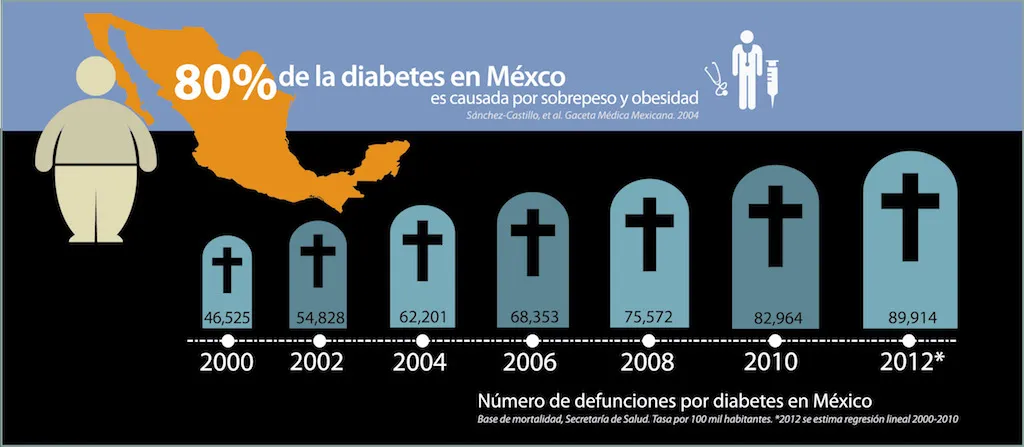In order to reduce morbidity and mortality rates by type 2 diabetes mellitus, the Faculty of Higher Studies (FES) Zaragoza of the UNAM established the Diabetes project, a multidisciplinary care program (Dupam).
It was put into operation at the University Clinic of Health Care Tamaulipas, in the municipality of Nezahualcóyotl, State of Mexico.
Specialists participate in the areas of Medicine, Nursing, Psychology, Biological Pharmaceutical Chemistry and Dentistry, which provide an alternative model of multidisciplinary care for people diagnosed with that disease.
The purpose is to modify patterns of thought and behavior that oppose biomedical treatment.
The university students, headed by Marco Antonio Cardoso Gómez, responsible for the project, together with social service interns, offer medical, nursing, dental, psychological, nutritional, community pharmacy, social integration and physical activation, according to the conditions of each person.
Due to the magnitude and transcendence of this public health problem, they are interested in their care from a particular and different perspective to that provided by health institutions.
"It is one thing to prescribe a treatment, and another pretend to be done without considering the vicissitudes of everyday life," Cardoso said.
This program supports people to carry their treatment through a care model that includes the medical part and the social and cultural area.
For example, “we help you resignify the taste and social value of food, medullary point in diabetes (the taste and appreciation for food is configured by the people with whom we share it, but not by the type of food),In addition to the size and type of rations that must ingest, among other aspects.
“In the field of psychology, in addition to providing them with attention to the management of their emotions, they are seen that diabetes is a life opportunity, even though with this condition it is not played by the complications that could occur if it is not maintainedcontrolled ”.
Diabetes, main cause of death
The University stressed that Mexico is one of the most affected countries in America by diabetes, chronic disease that, with the passage of time, generates metabolism disorders, not only of carbohydrates, but also of lipids and proteins.
That condition, together with cardiovascular conditions, is the main cause of death in our nation.According to figures from the Ministry of Health, more than 98 thousand Mexicans die every year due to diabetes.
In 2016, that institution declared two sanitary emergencies, one by overweight and obesity, and another for type 2 diabetes mellitus, he said.
The lack of attention of this disorder implies, in the long term, serious damage to the body such as blindness, renal failure and/or amputations, Cardoso Gómez warned.
He reiterated that in the control of diabetes a diagnosis and medical prescription is not enough, comprehensive help is required so that the treatment can be performed in the patient's daily environment and thus overcome certain difficulties that could occur.
In addition, the integration of specialists from various disciplines is necessary, as diabetes is not controlled in an office or hospital, “one lives and controls at home.We provide strategies to face it in their sociocultural field and follow a pharmacological treatment as support. ”
With the scientific and technological advances recorded in medicine, this disease should not be a public health problem, at least in theory.However, chronic conditions are treated with the same model as acute or infectious, as medicine was created for the latter, when in theThe predominant are the chronicles, so they require a specific process, he stressed.
He stressed that this disorder “allows us to live with fullness if it is eaten in a regulated manner, physical activity is carried out and pharmacological treatment is followed as support.Those are the three basic rules. ”


